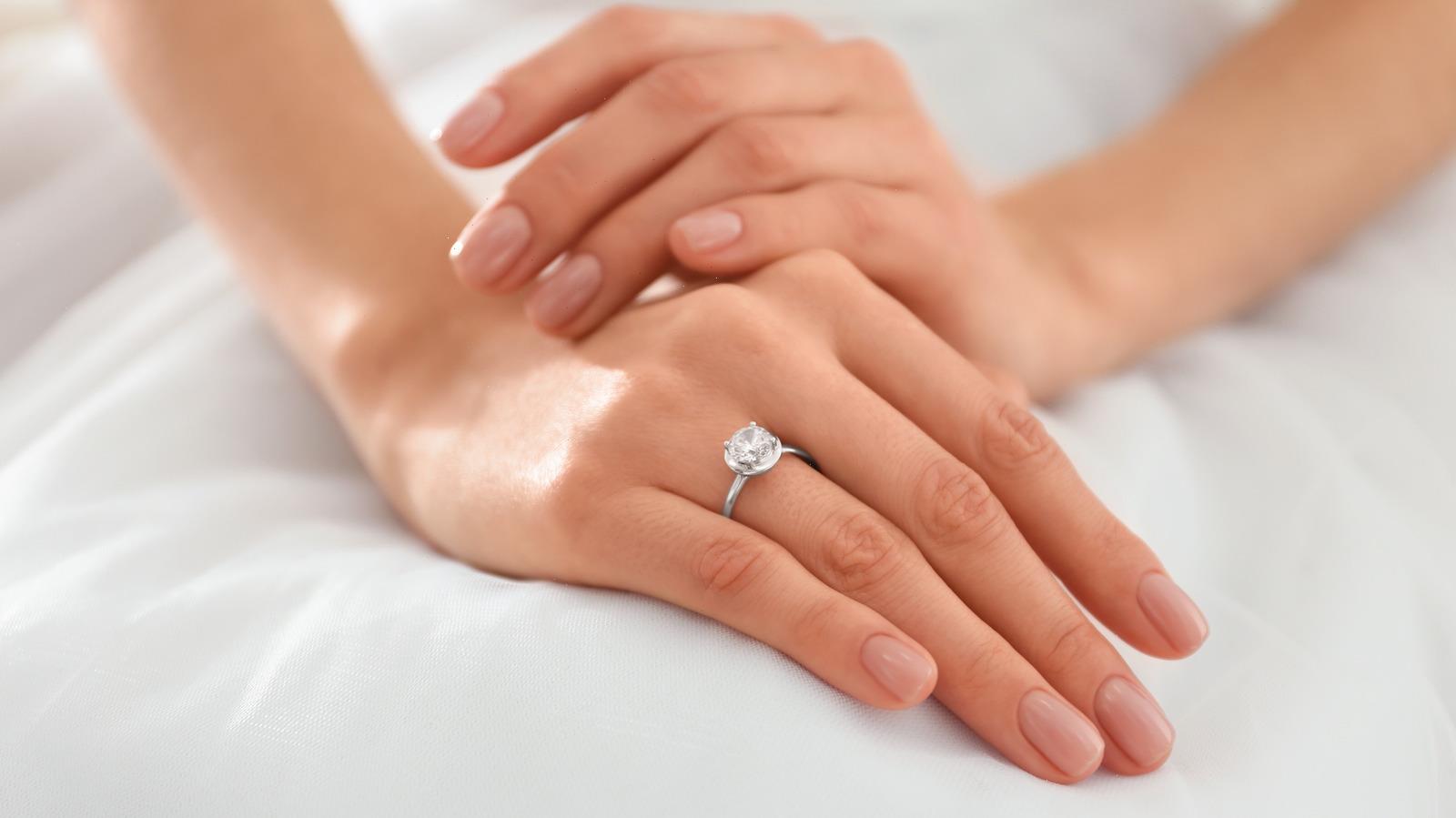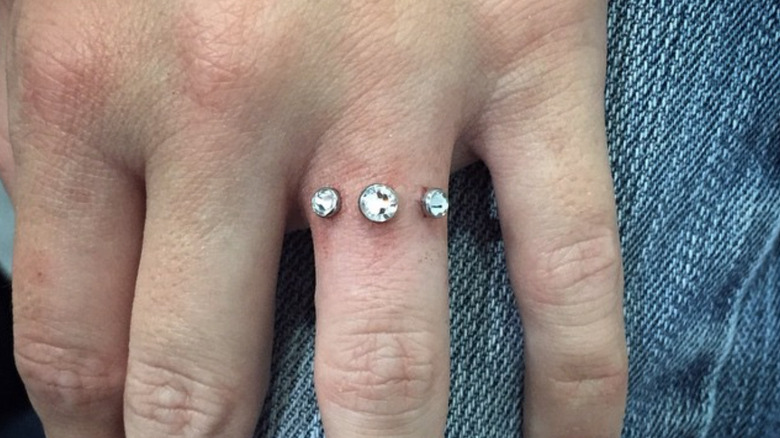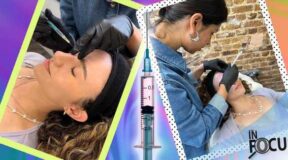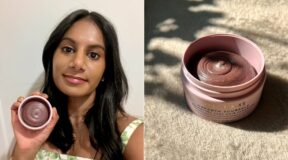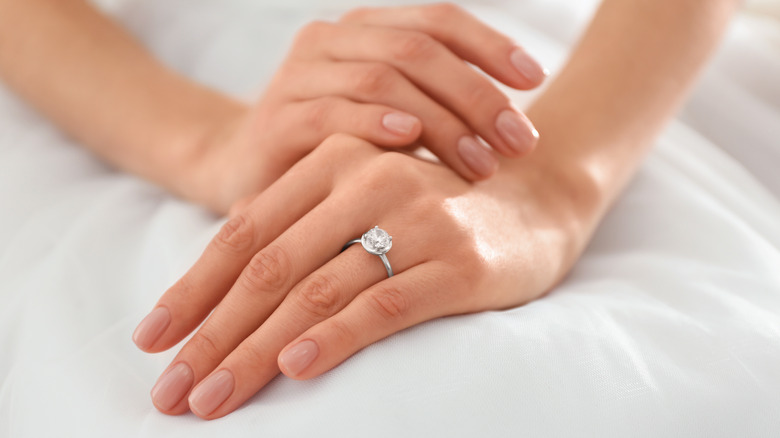
By Kristin Conard/Aug. 26, 2021 1:13 pm EDT
You get a wedding ring to symbolize the love and loyalty you have for your partner. For people looking to make their wedding ring a more permanent part of their body, there’s the option for a wedding ring tattoo. Another twist on the traditional wedding ring is to get a wedding ring piercing.
Known by professional piercers as a “finger dermal,” a wedding ring piercing makes it look like the diamond or other stone is embedded in your finger — no band necessary (via Allure). It’s definitely a unique way to celebrate your relationship. But is it a good way?
A dermal piercing, also called a microdermal or a single-point piercing, involves an anchor embedded in your skin which the jewelry is screwed into, making it look like it’s sitting on top of your skin (from TatRing). If you get one, don’t think you’ll have it forever. The Association of Professional Piercers defines wedding ring piercings and other piercings like them as “long-term temporary,” since your body will end up rejecting and pushing out the anchor that’s beneath your skin at some point. The healing time, according to TatRing, can be anywhere from one to three months, and they emphasize how important it is to prevent the piercing from getting pulled or moved during that period.
Potential problems with a wedding ring piercing include infection and tearing
While a wedding ring piercing can look pretty cool, it carries the potential to cause many issues. Have you ever gotten a ring caught in anything like your hair or a sweater? “It’s an accident waiting to happen,” piercing pro Cassi Lopez told Refinery29. “Think about everything you do with your hands, like reaching into your pockets, putting on gloves, or wiping yourself after you go to the bathroom. There’s a huge chance of not only rejection and tearing, but a serious infection.”
She’s not the only one with hesitation about wedding ring piercings. “There is constant movement in the fingers, which could displace the piercing,” explained Joshua Zeichner, Mt. Sinai hospital’s director of cosmetic and clinical research in dermatology told Allure. “Think about how many times we accidentally bang our hands against the side of the table or doorframe.”
Now that you know the risks, what do you think? Will you be sporting one of these unusual piercings when you say “I do”?
Source: Read Full Article
